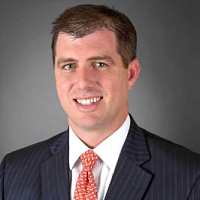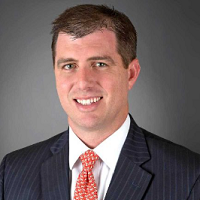Financial Planning vs. Investment Strategy: Which Is More Important?
If your experience with your financial adviser has been all about focusing on investment management rather than on holistic financial planning, you might want to consider a different approach.


Profit and prosper with the best of Kiplinger's advice on investing, taxes, retirement, personal finance and much more. Delivered daily. Enter your email in the box and click Sign Me Up.
You are now subscribed
Your newsletter sign-up was successful
Want to add more newsletters?

Delivered daily
Kiplinger Today
Profit and prosper with the best of Kiplinger's advice on investing, taxes, retirement, personal finance and much more delivered daily. Smart money moves start here.

Sent five days a week
Kiplinger A Step Ahead
Get practical help to make better financial decisions in your everyday life, from spending to savings on top deals.

Delivered daily
Kiplinger Closing Bell
Get today's biggest financial and investing headlines delivered to your inbox every day the U.S. stock market is open.

Sent twice a week
Kiplinger Adviser Intel
Financial pros across the country share best practices and fresh tactics to preserve and grow your wealth.

Delivered weekly
Kiplinger Tax Tips
Trim your federal and state tax bills with practical tax-planning and tax-cutting strategies.

Sent twice a week
Kiplinger Retirement Tips
Your twice-a-week guide to planning and enjoying a financially secure and richly rewarding retirement

Sent bimonthly.
Kiplinger Adviser Angle
Insights for advisers, wealth managers and other financial professionals.

Sent twice a week
Kiplinger Investing Weekly
Your twice-a-week roundup of promising stocks, funds, companies and industries you should consider, ones you should avoid, and why.

Sent weekly for six weeks
Kiplinger Invest for Retirement
Your step-by-step six-part series on how to invest for retirement, from devising a successful strategy to exactly which investments to choose.
When you think about the counsel offered by your financial adviser, is it truly holistic financial planning or really just investment management? This distinction is important under any circumstances, but particularly amid the extreme market volatility we’ve seen this year. So, what is holistic financial planning?
Holistic financial planning revolves around extensive conversations between you and your adviser, focusing on the life you want to live. Ideally, it also entails active coordination between your adviser and other financial specialists in your life, such as your accountant, estate planner and insurance professional.
Many investors do a good job of putting different elements in place regarding their financial planning, but it tends to be done in silos. The various financial professionals aren’t really talking to one another, and it’s up to you to try to coordinate everything.
From just $107.88 $24.99 for Kiplinger Personal Finance
Become a smarter, better informed investor. Subscribe from just $107.88 $24.99, plus get up to 4 Special Issues

Sign up for Kiplinger’s Free Newsletters
Profit and prosper with the best of expert advice on investing, taxes, retirement, personal finance and more - straight to your e-mail.
Profit and prosper with the best of expert advice - straight to your e-mail.
When an expert adviser is looking at everything to ensure proper coordination, it not only optimizes your ability to live the life you want, but it will build your confidence in the plan. Accordingly, you’ll be much less likely to panic or make unwise decisions when the market experiences significant volatility.
Coordination Among Financial Professionals Is Key
Think of it like running a Fortune 500 company. The board of directors (in this case, the client/family) creates the vision and explains it to the CEO (the adviser), who must then ensure that all the individual departments of the company (silos) work individually and collectively to execute that vision.
If the sales and distribution departments operate independently and rarely communicate, major issues could arise. The same is true when an investment strategy operates independently of cash flow and expenses. If an adviser doesn’t know that a client has been planning to take a substantial distribution from their investment account, is it the client’s fault for not telling the adviser or the adviser’s fault for not asking?
An adviser focusing only on investments isn’t serving as the figurative CEO, who ensures that everything is coordinated and possesses the relevant expertise. Rather, the client is the CEO in this scenario, and the adviser is just running the investment department. Coordination of silos by the client is better than no coordination, but that won’t necessarily prevent unwise decisions. An expert adviser can do so by leveraging comprehensive knowledge and continually emphasizing the overall financial plan with each client.
Power of Planning With a Trusted Financial Planner
I believe that the financial services profession is generally very honorable, and most advisers are good people who keep their clients’ best interests in mind. But the majority of the industry has been built around product placement. Looking back 40 or 50 years, it was all about selling stocks to retail investors who had little access to relevant investing information on their own.
Over time, extensive information about investment options has become widely available to the general public. Yet I think the industry still tends to believe its value is based on reading the tea leaves of the market and making allocations that help drive returns. In reality, the true value of a top adviser now is helping to align a client’s capital with their vision, values and concerns — not being reactionary and saying because the market has gone up or down, you should be underweighting this or overweighting that.
Planning is powerful, so make sure to have a trusted planner. When an advisory relationship is based on financial planning rather than investment management, your goals are clearly articulated. The associated cash flow, time and expense of achieving them are mapped out, and the allocation of capital is based on that road map.
If the market is down 20%, and the only conversations you ever had with an adviser revolved around investment management, how do you get to a place of emotional security so you don’t panic and lock in losses? It’s up to the adviser to ensure your relationship instills you with confidence and comfort even amid market volatility.
Investing mistakes are usually fear-based and due to short-term thinking. Because, historically speaking, markets are volatile in the short term, and none of us can predict what will happen. But in the long run, the data clearly shows that markets go up.
Cookie-Cutter Questionnaires Are Problematic
Too often in the industry, a client’s high-level asset allocation has been determined by a generic questionnaire intended to gauge risk tolerance and time horizon. Besides not being nearly customized enough, the inherent flaw of this approach is that the same person might answer these questions differently from one week to the next — depending on whatever is happening in their life.
How are they feeling about their job? What did they see on the news the night before? Did their neighbor recently get in an accident? These and many other factors can easily influence responses, and such questionnaires aren’t likely to determine a global allocation that a client can really connect with and feel confident about.
Asset allocation shouldn’t be determined by emotion. My firm focuses on doing the math first, including a financial planning exercise to determine cash-flow requirements throughout the rest of your life, while best avoiding sequence-of-returns risk. Because if you live a long, happy, healthy life, like we hope all of our clients do, you might spend at least 30 years in retirement. You’re going to see market downturns and volatility during that time, and it’s important not to overreact to them.
I always ask clients to keep me updated on how they want to live and the things they want to do so we can evolve their global allocation. People tend to be very comfortable with that approach because the planning has been conducted first and they understand it. Investing recommendations are always connected to the overall plan. So if a client ever asks about the reasoning for a certain investment or allocation, I can respond by saying, “Because we’ve discussed how your goals are A, B and C, and that has led us to implement these strategies in pursuit of them.”
Finding the Right Fit
Decades ago, when individual investors lacked access to so much important information, it was valuable for the financial industry to offer investment management as a standalone product. With changing times, holistic financial planning now clearly offers the greater value proposition.
That said, many investors aren’t familiar enough with the concepts to know the difference between a true financial plan and simply an investment strategy. If you’re not sure, I’d recommend thinking about when the last time was that your adviser reviewed your tax returns, estate planning documents and insurance policies. If the answer is never, then it’s probably just an investment management relationship — and you deserve a better approach.
Profit and prosper with the best of Kiplinger's advice on investing, taxes, retirement, personal finance and much more. Delivered daily. Enter your email in the box and click Sign Me Up.

Michael E. Lewis II is a Wealth Management Advisor at Apollon, and has been in the financial services industry since 2011. He is driven by the privilege of helping his clients’ families and/or businesses achieve a successful and secure financial future, and ensuring they enjoy the journey along the way. Michael was born and raised in Charleston (yep, one of the remaining few). When not working, Michael can typically be found watching his three boys – Calib, Cullen, and Carter – playing various sports year-round. On the off chance they don’t have a game, you might find him trying to find his ball in the woods of one of the local golf courses.
-
 Dow Adds 1,206 Points to Top 50,000: Stock Market Today
Dow Adds 1,206 Points to Top 50,000: Stock Market TodayThe S&P 500 and Nasdaq also had strong finishes to a volatile week, with beaten-down tech stocks outperforming.
-
 Ask the Tax Editor: Federal Income Tax Deductions
Ask the Tax Editor: Federal Income Tax DeductionsAsk the Editor In this week's Ask the Editor Q&A, Joy Taylor answers questions on federal income tax deductions
-
 States With No-Fault Car Insurance Laws (and How No-Fault Car Insurance Works)
States With No-Fault Car Insurance Laws (and How No-Fault Car Insurance Works)A breakdown of the confusing rules around no-fault car insurance in every state where it exists.
-
 For the 2% Club, the Guardrails Approach and the 4% Rule Do Not Work: Here's What Works Instead
For the 2% Club, the Guardrails Approach and the 4% Rule Do Not Work: Here's What Works InsteadFor retirees with a pension, traditional withdrawal rules could be too restrictive. You need a tailored income plan that is much more flexible and realistic.
-
 Retiring Next Year? Now Is the Time to Start Designing What Your Retirement Will Look Like
Retiring Next Year? Now Is the Time to Start Designing What Your Retirement Will Look LikeThis is when you should be shifting your focus from growing your portfolio to designing an income and tax strategy that aligns your resources with your purpose.
-
 I'm a Financial Planner: This Layered Approach for Your Retirement Money Can Help Lower Your Stress
I'm a Financial Planner: This Layered Approach for Your Retirement Money Can Help Lower Your StressTo be confident about retirement, consider building a safety net by dividing assets into distinct layers and establishing a regular review process. Here's how.
-
 The 4 Estate Planning Documents Every High-Net-Worth Family Needs (Not Just a Will)
The 4 Estate Planning Documents Every High-Net-Worth Family Needs (Not Just a Will)The key to successful estate planning for HNW families isn't just drafting these four documents, but ensuring they're current and immediately accessible.
-
 Love and Legacy: What Couples Rarely Talk About (But Should)
Love and Legacy: What Couples Rarely Talk About (But Should)Couples who talk openly about finances, including estate planning, are more likely to head into retirement joyfully. How can you get the conversation going?
-
 How to Get the Fair Value for Your Shares When You Are in the Minority Vote on a Sale of Substantially All Corporate Assets
How to Get the Fair Value for Your Shares When You Are in the Minority Vote on a Sale of Substantially All Corporate AssetsWhen a sale of substantially all corporate assets is approved by majority vote, shareholders on the losing side of the vote should understand their rights.
-
 How to Add a Pet Trust to Your Estate Plan: Don't Leave Your Best Friend to Chance
How to Add a Pet Trust to Your Estate Plan: Don't Leave Your Best Friend to ChanceAdding a pet trust to your estate plan can ensure your pets are properly looked after when you're no longer able to care for them. This is how to go about it.
-
 Want to Avoid Leaving Chaos in Your Wake? Don't Leave Behind an Outdated Estate Plan
Want to Avoid Leaving Chaos in Your Wake? Don't Leave Behind an Outdated Estate PlanAn outdated or incomplete estate plan could cause confusion for those handling your affairs at a difficult time. This guide highlights what to update and when.